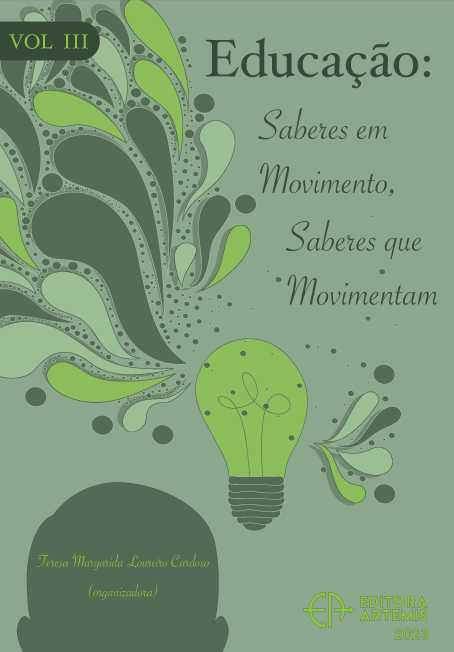
UNA EXPERIENCIA DE APRENDIZAJE PARA FORTALECER EL PROCESO DE AUTOEVALUACIÓN
La emergencia sanitaria que vivimos del COVID 19, las priorizaciones curriculares, los desafíos de prácticas de enseñanza relativas a la diversidad, intensificaron los diseños y propósitos para la formación inicial docente; en este escenario, resulta neurálgico preguntarse respecto al logro de aprendizajes significativos en la formación de futuros y futuras profesionales de la educación; la producción de conocimiento y las compresiones del mismo, por lo tanto es un desafío enseñar en entornos análogos; considerando aquello, se eligió abordar la herramienta mapas conceptuales, ya que estos apoyan el aprendizaje de las y los estudiantes, (Novak, 1988) vinculando nuevos conceptos a otros que ya poseen, integrando información nueva en donde aprenden a organizar, interrelacionar, sintetizar, dar fluidez y sentido a los contenidos abordados en una clase o bien desde un texto referencial. Sabemos que las teorías cognitivas y las didácticas han instrumentalizado los mapas conceptuales; sin embargo esta experiencia constituye métodos activo-participativos, de ideas comunitarias y colaborativas en donde las/os estudiantes requieren organizarse para elaborar, analizar y desarrollar conocimientos, así de esta manera, la relevancia de la experiencia queda supeditada a la apertura de nuevas representaciones y modos de construcción de conocimientos significativos y profundos entregando nuevas interacciones entre estudiantes, docentes y aprendizajes. Para el abordaje de esta innovación pedagógica se trabajó con estudiantes de pregrado de las carreras de Educación Parvularia, Física y Educación Física de una universidad pública durante el primer semestre del año 2021, sustentada por la creación de mapas conceptuales; abriendo lo visual y lógicas sensibles, tradicionalmente obviadas por la episteme academicista , como elemento de producción de conocimiento y sobre todo innovando en nuevas estrategias de diversificación del proceso de enseñanza que posibilitan potenciar los procesos cognitivos, el desarrollo de habilidades y competencias declaradas en los diferentes programas de las asignaturas. (Monereo, 2021). Por lo tanto, repensar otras lógicas para las didácticas en FID, implica rescatar herramientas cotidianas y disponibles para resignificar procesos de aprendizaje, que contribuyen en la forma de acceder y adquirir el conocimiento como proceso para aprender, lo cual conlleva a reconocerse como compañeros/as en la construcción colaborativa e intercambio de información, transformando el objeto del conocimiento en un proceso subjetivo de comprensión.
UNA EXPERIENCIA DE APRENDIZAJE PARA FORTALECER EL PROCESO DE AUTOEVALUACIÓN
-
DOI: 10.37572/EdArt_2802237748
-
Palavras-chave: Palabras clave: Saber Docente, métodos de aprendizaje, innovación pedagógica Autoevaluación, autocrítica, reflexión
-
Keywords: Teacher knowledge, learning methods, pedagogical innovation Self-evaluation, self-criticism, reflection
-
Abstract:
The health emergency we are experiencing from COVID 19, curricular prioritizations, the challenges of teaching practices related to diversity, intensified the designs and purposes for initial teacher training; In this scenario, it is neuralgic to ask about the achievement of significant learning in the training of future and future education professionals; the production of knowledge and the compressions of it, therefore it is a challenge to teach in analogous environments; considering that, it was chosen to address the Concept Maps tool, since these support the learning of students, (Novak, 1988) linking new concepts to others they already have, integrating new information where they learn to organize, interrelate, synthesize, give fluency and meaning to the contents addressed in a class or from a referential text. We know that cognitive and didactic theories have instrumentalized concept maps; However, this experience constitutes active-participatory methods, of community and collaborative ideas where students need to organize themselves to elaborate, analyze and develop knowledge, so in this way, the relevance of the experience is subject to the opening of new representations and modes of construction of significant and deep knowledge delivering new interactions between students, teachers and learning. To address this pedagogical innovation, we worked with undergraduate students of the Preschool Education, Physical and Physical Education careers of a public university during the first semester of 2021, supported by the creation of concept maps; opening the visual and sensitive logics, traditionally ignored by the academic episteme, as an element of knowledge production and above all innovating in new strategies of diversification of the teaching process that make it possible to enhance cognitive processes, the development of skills and competencies declared in the different programs of the subjects. (Monereo, 2021). Therefore, rethinking other logics for didactics in FID, implies rescuing everyday and available tools to resignify learning processes, which contribute to the way of accessing and acquiring knowledge as a process to learn, which leads to recognize themselves as peers in the collaborative construction and exchange of information, transforming the object of knowledge into a subjective process of understanding.
-
Número de páginas: 18
- VERÓNICA PRIETO CORDERO

